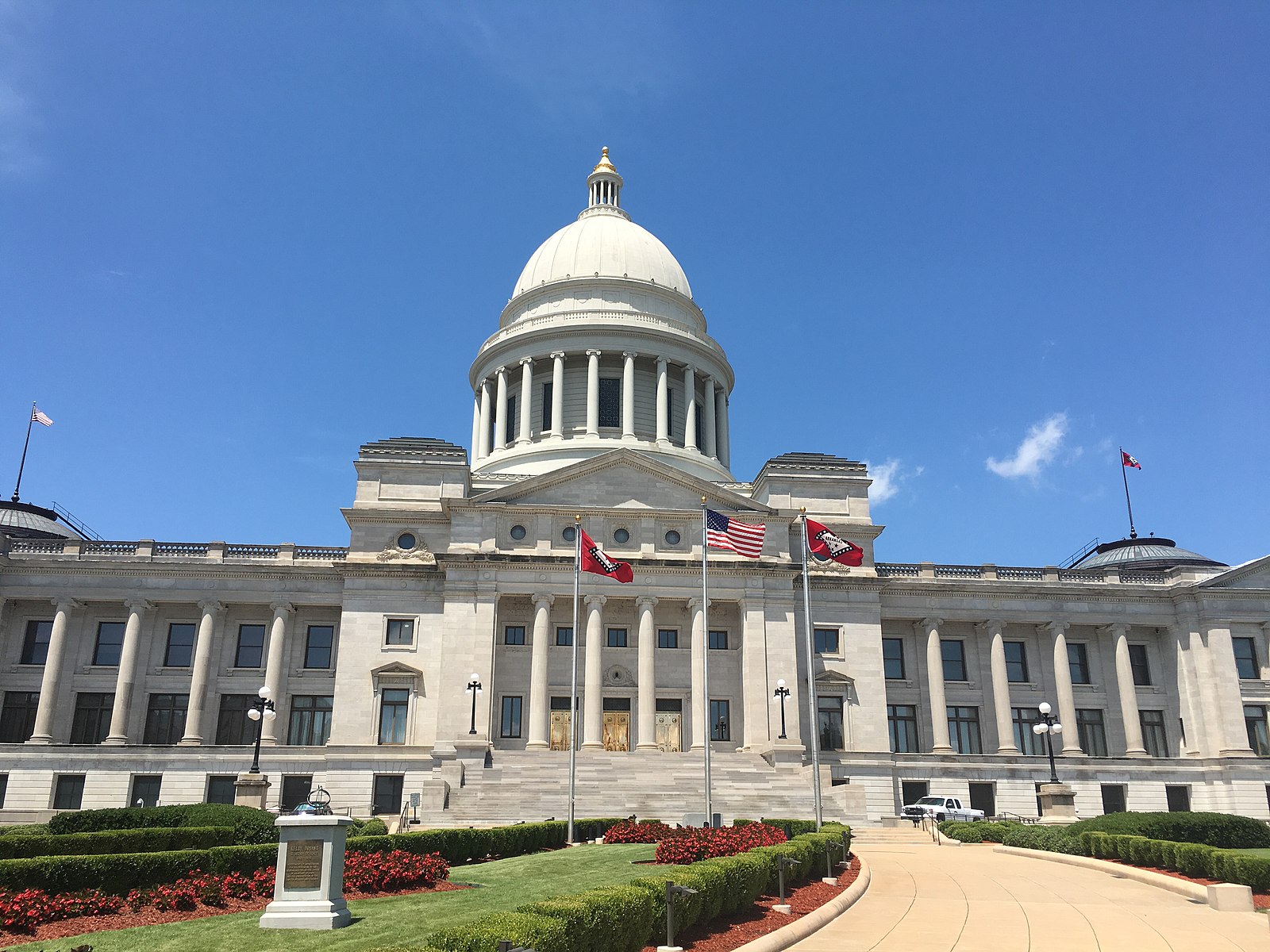This article could be illegal in Arkansas

In August 2017, the Arkansas legislature passed a law requiring any state contractor to sign a form pledging it will not participate in a boycott of Israel. The only options for a contractor that does not want to sign are to give up contracting with the state or to discount prices by 20 percent. The law is so broad it could outlaw the publication of this article in the state. Here’s why.
The Arkansas Times, an alternative newsweekly in Little Rock, has for years contracted to run advertisements for Pulaski Technical College, a state school. The Times has never commented on an Israeli boycott, but it refused to sign the certification for fear it would interfere with its perceived editorial independence. Pulaski Technical College withdrew its advertising.
The Arkansas Times sued, arguing the law violates the First Amendment, particularly because the Arkansas legislature passed the law not because of any rash of Israeli boycotts in the state, but to target one particular global boycott movement, the “Boycott, Divestment, Sanctions” campaign, or “BDS”.
The Reporters Committee for Freedom of the Press and a coalition of 15 news media organizations filed a brief in support of the Times. The brief takes no position on Israel, Israeli boycotts, BDS, or even political boycotts in general. Rather, it argues that the law puts any news organization in an impossible situation: Either it signs the certification and is perceived as pro-Israel or anti-boycott, or it foregoes contracting with the state (or drops its prices dramatically) and is perceived as anti-Israel or pro-boycott. It’s the quintessential catch-22.
Additionally, any reasonable news organization that does sign the certification could conclude that the law covers not only commercial activity like running a pro-boycott advertisement, but also an editorial, op-ed, straight news article or other content quoting a BDS supporter or opposing the Arkansas law — like this. An outlet that’s signed the certification might understandably avoid printing any of that content in order to keep its state contracts.
The law therefore violates longstanding constitutional protections that prevent the government from interfering with a newspaper’s editorial independence.
The history of those protections is instructive. Back around the turn of the last century, the editorial bent of southern newspapers tended to break down between city and country. Urban papers opposed more populist Democrats, while rural ones supported them.
In the early 1900s, Napoleon B. Broward, the Democratic governor of Florida (and unapologetic segregationist) who made a name as a riverboat captain and became famous for draining the Everglades, pushed a “fake news” bill that would have allowed Broward to sic the law on what he contended were falsehoods in the urban dailies.
Though initially unsuccessful, the Broward proposal evolved into a “right-to-reply” statute adopted in 1912 but rarely used. The law required a newspaper that printed a negative editorial about a candidate to allow the candidate to publish, free of charge, a reply in as “conspicuous” a place in the paper as the original criticism.
In 1972, the Miami Herald editorialized twice against a candidate for the Florida House of Representatives, Pat Tornillo, and refused to allow him to print a reply. After the election, Tornillo sued under the obscure 1912 law and the case went all the way to the Supreme Court.
In 1974, the court unanimously struck down the law in Miami Herald v. Tornillo, which found the law unconstitutional for two key reasons.
One, newspapers might just avoid editorializing about candidates for public office. Why even take the chance, particularly when the law was unclear on just what kind of editorial would trigger the “right” to force the paper to print a response?
Two, government interference with a newspaper’s editorial discretion is just wrong as a matter of American constitutional norms and values. “A responsible press is an undoubtedly desirable goal,” the court said, “but press responsibility is not mandated by the Constitution, and, like many virtues, it cannot be legislated.” The court held that the only effective check on an irresponsible newspaper is its ability to secure the trust and patronage of the public and the “journalistic integrity of its editors and publishers.”
The Arkansas law here directly interferes with these rights. Not only does it put a thumb on the scale of public debate — a newspaper that signs the certification is free to publish editorials or any other content opposing an Israel boycott — but it also forces newspapers that might otherwise remain silent on a public controversy to take a side.
Again, using just this piece as an example, if a paper feared that the arguments here promoted an Israeli boycott (which they emphatically do not), it might reject publishing this out of hand. It should go without saying that no editorial, op-ed or news article should be “illegal,” particularly one talking about core constitutional protections for free speech and our free press.
The Reporters Committee regularly files friend-of-the-court briefs and its attorneys represent journalists and news organizations pro bono in court cases that involve First Amendment freedoms, the newsgathering rights of journalists and access to public information. Stay up-to-date on our work by signing up for our monthly newsletter and following us on Twitter or Instagram.